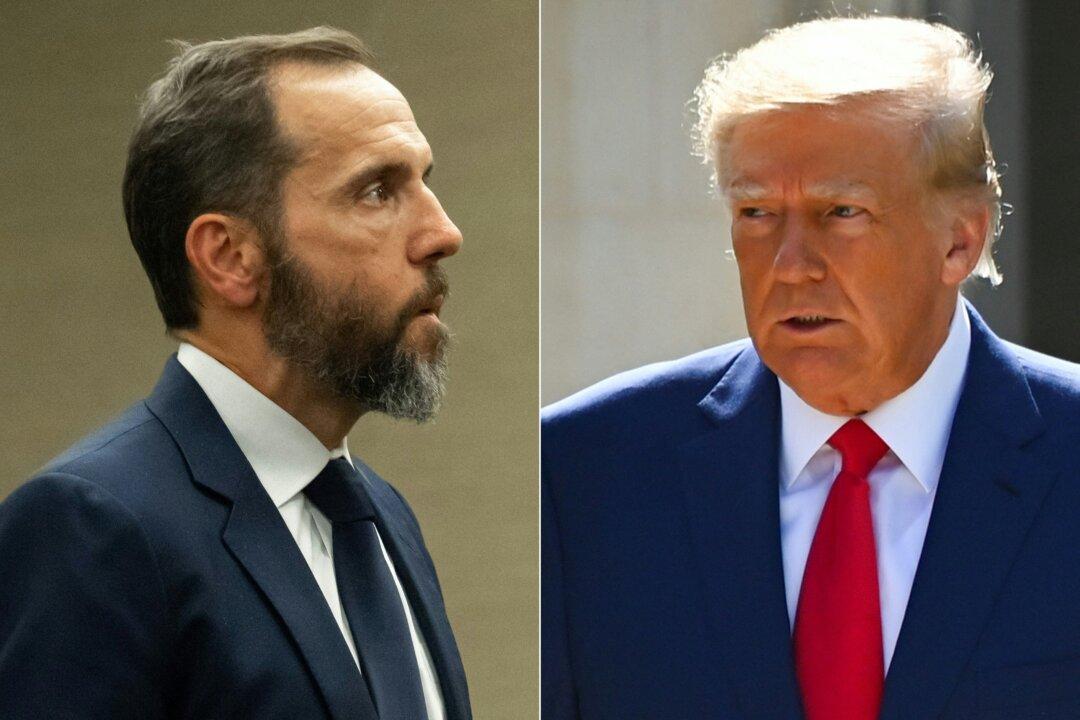Special counsel Jack Smith’s team of prosecutors filed a response to former President Donald Trump’s attempts to dismiss his federal Jan. 6 case, signaling that certain statements that the former president made after the Jan. 6 Capitol breach would be used against him during the trial next year.
In a lengthy court filing on Monday, federal prosecutors alleged that President Trump praised some of the individuals who were later charged in connection to the Jan. 6 breach for a choir version of the U.S. national anthem at a Texas rally.





